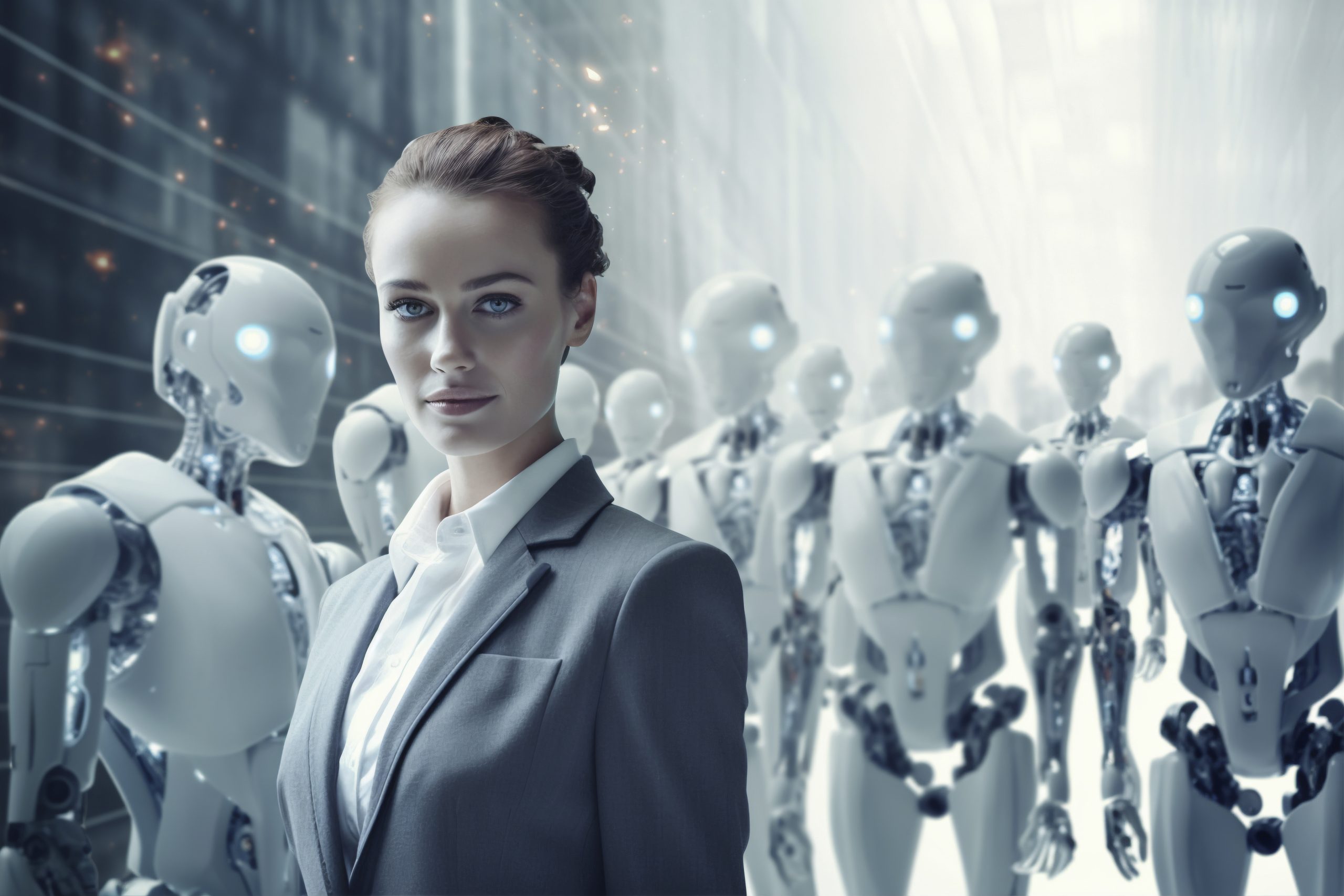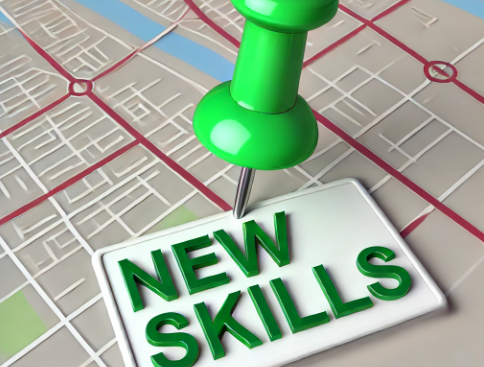
Artificial intelligence (AI) is rapidly changing the recruiting industry, offering innovative solutions to optimize the hiring process. In 2024, the impact of AI on recruiting will become more visible, opening up new opportunities and challenges for HR professionals. From automating routine tasks to improving the quality of candidate selection, AI is transforming traditional approaches to talent acquisition and assessment, while requiring a rethinking of the human role in the process.
How artificial intelligence is transforming the world of recruiting
Artificial intelligence (AI) is revolutionizing personnel selection. It’s no wonder that 43% of HR professionals already use Artificial intelligeernce in their hiring processes. This rapid adoption is because organizations are beginning to see the potential of AI and its ability to improve their recruiting efforts. The global AI market is expected to reach more than $1.8 billion by 2030, indicating the longevity of this transformation.
Recruiting is a resource-intensive and time-consuming process that is often accompanied by challenges. From sourcing and screening candidates to interviewing and assessing talent, recruiters must perform various tasks to find the right candidate for a company’s needs. The advent of AI means that many of these tasks can now be simplified, saving hiring managers time and resources.
What is AI for recruiting?
AI for recruiting is the application of artificial intelligence technologies, like in the AI hiring software process, to optimize and automate various aspects of recruiting. AI allows recruiters to harness the power of data to make better decisions. AI can help in sourcing and selecting candidates, analyzing resumes and job applications, conducting preliminary assessments, and predicting candidate success and fit with corporate culture.
Using Artificial intelligence, recruiters can save time and effort, improve candidate selection, reduce bias, and make data-driven decisions.
Why is AI important for recruiting?
- Maximize recruiting efficiency: AI solutions can instantly process thousands of applications and identify qualified candidates, significantly reducing administrative time.
- Overcoming recruiting bias: Artificial intelligence can objectively evaluate candidates based on qualifications and experience rather than relying on subjective factors.
- Improving the candidate experience: AI tools can streamline the application process, making it more efficient and enjoyable for candidates.
- Improve quality of hire: Artificial intelligence recruiting solutions can evaluate candidates based on data and analytics, providing insights that help managers make informed decisions.
How can AI be used in recruiting?
- Candidate search: This tools automate the search for potential candidates on job search platforms, internal databases, and social networks.
- Candidate screening: Systems can quickly extract meaningful information from job applications and effectively identify the best candidates.
- Talent Assessment: Tools use gamification, behavioral assessments, and skills testing to measure candidates’ competencies and personality traits.
- Interviewing candidates: This interviewing platforms can conduct pre-screening interviews and analyze candidates’ voices and facial expressions.
- Job offer and onboarding: Artificial intelligence tools can create a personalized onboarding experience for new hires, improving engagement and productivity.
AI is changing the hiring process, offering an innovative and cost-effective way to accelerate recruiting while improving the quality of hire. Organizations that effectively implement AI in their recruitment software processes can gain a significant competitive advantage in the labor market.
Artificial intelligence in recruiting 2024: advantages and disadvantages
Recruiting teams increasingly use artificial intelligence (AI) during the recruiting process. Let’s consider the main advantages and risks you should know.
Technology has long been changing the traditional hiring process, but the era of artificial intelligence is genuinely transforming the recruiting landscape. Processes will be revolutionized, the time to fill vacancies will decrease, and the recruiter’s role will change.
The benefits of AI: improving recruiting practices
- Reducing administrative work, AI can help with mundane tasks such as writing simple job descriptions, answering candidate questions via chatbots, or automatically scheduling interviews. This allows recruiters to focus on more critical aspects of the job.
- Accelerating Mass Screening For positions with simple resume requirements or large numbers of applicants, Artificial intelligence can help pre-screen candidates, speeding up the recruiter’s work.
- Diversifying the AI workforce evaluates candidates based on minimum qualifications only, without the biases that humans may have.
- AI can improve the candidate experience by simplifying and accelerating the hiring process and keeping candidates informed.
Challenges and Risks: Navigating the AI Landscape
- Variable quality of candidates Relying entirely on AI for screening can result in losing promising candidates if the technology cannot “read between the lines” of resumes and applications.
- Losing the human factor Automated systems can be efficient, but they need to understand how people might interact in real life.
- Significant investment Implementing this tools in recruiting requires financial costs for specialized tools and time for employee training.
Striking the right balance: AI and human-centric recruiting
There are many benefits to using Artificial intelligence and the recruiting process. Still, before implementing it into your AI and recruitment software strategy, you must think carefully about how and where it can help. It is also important to consider the AI management principles established by the company’s management.





Leave a Reply